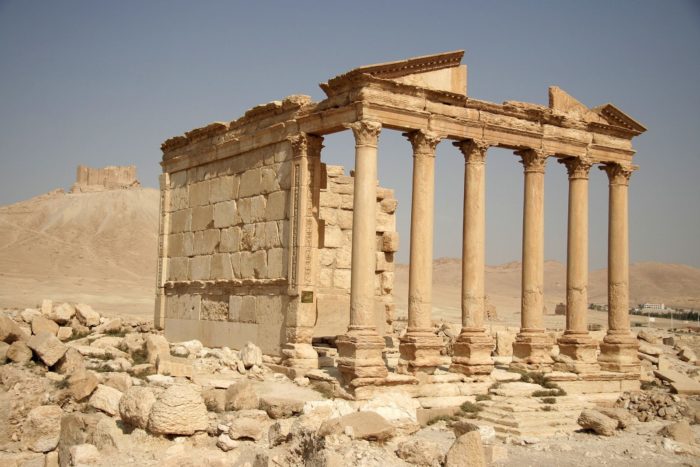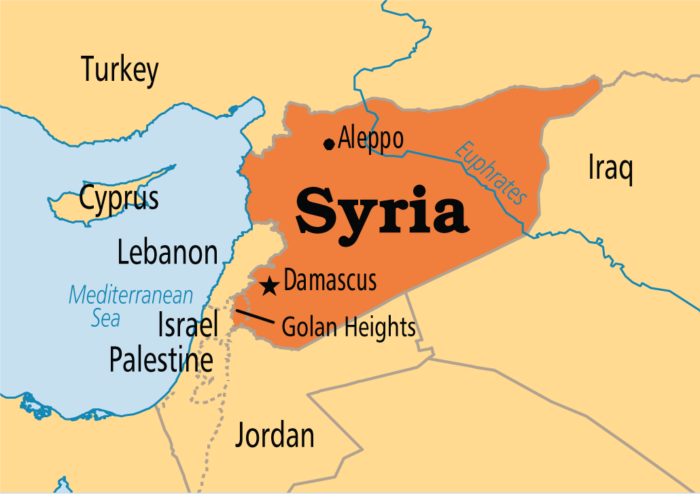By Sabiha Tafader
The current leader of Syria is president Bashar al-Assad, who has been fighting opposing forces and Jihadists for more than four years. Throughout history the victims of this conflict have been mostly civilians—and they continue to be.
By only 2013, in major cities like Aleppo, and Damascus (the capital of Syria), 90,000 residents died; Imagine by 2018 how many lives are being lost whilst the war still continues?
The ongoing refugee crisis is a modern day humanitarian issue. European countries hesitate providing refuge to the victims, while the U.S. wants to place travel bans against middle Eastern nations that are in turmoil. An article titled “The Syrian Refugee Crisis and its Repercussions for the EU”, states: “An estimated 11 million Syrians have fled their homes since the outbreak of the civil war in March 2011…. 4.8 million have fled to many neighboring nations, and 6.6 million are internally displaced within Syria.” More than one hundred thousand Syrians have also fled to European nations like Germany and Sweden. Even though refugees seek haven in such nations, they still do not have access to adequate life-saving aid and are unable to meet their basic needs. In fact, Syrians in these nations can face social ostracism as well as poverty if their host cities don’t welcome them.
In the online article “U.N. Calls on Western Nations to Shelter Syrian Refugees” journalist Somini Sengupta claims that even with Syria’s neighbors shutting their borders to refugees, the U.N. appears to be barely caring about such a serious and extreme crisis. At this point it seems like the lives of the refugees are in the hands of individual national governments, which are doing little to help. In fact,“superpowers” like Russia and the US, are actually hurting the cause of the refugees with their actions and attitudes.
Russia has typically supported Assad, and that is obviously for its own benefit. Russia supports Syria because Russia has a small naval base in Tartus, which is the only Russian base in the Mediterranean Sea, and Russia would love it for it to remain there. But how? Simply by pleasing and supporting Assad. Another argument Russia uses to defend its support of Syria’s current regime is because it seems to be one of the only countries willing to fight violent terrorists. Nevertheless, the main reason why Syrian people are now fleeing to other countries is to survive. Their homes and property are destroyed, and they have begun to starve. People began to lose hope, and with no hope they see no future unless they leave their country. As a president, Assad could do many things to help the people of his nation if encouraged or pressured to do so, and could stop them from fleeing by providing them with safe places to live and food.
While the war has been going on a long time, the massive exodus on foot of thousands of families is a relatively recent phenomenon. Syrian refugees are now joining many other immigrants from Africa and the Middle East trying to relocate to Europe for a better life. Many of those “developed” nations, like Italy, France, Portugal, parts of Scandinavia and Germany have already taken many refugees over the past two years, and now say they don’t have the resources to safely take more. In the case of Spain, France and Italy, they already have a depressed economy, and don’t even have enough jobs for native children now graduating school. In Italy and France the “camps” that used to house refugees until they could find proper jobs and housing are now dangerously overcrowded and crime ridden. The large numbers of the needy are the real problem at the moment.
Governments and diplomatic organizations like the U.N. should seriously address the economic problem of finding housing and jobs for large numbers of refugees. These refugees are human beings and should have the right to live. The richer countries could help by providing money and food and so can the U.N. Even a bit of strategic help can a make a huge change in a person’s life, if not for every one of the millions of refugees out there. It is ridiculous how the Trump administration’s rhetoric wants to refuse Muslim refugees outright for reasons of fear and cultural difference. It’s not wrong to seek safety for one’s own country, but not to such an extent where one comes across as demonizing all Islamic nations and Muslim refugees specifically, especially Syrians who are in drastic need of social and economical help. Being the focus of such blatant cultural bias is traumatic.
(Map of Syria)
Look around you. You have a home, you are able and allowed to attend school, and enjoy the facilities of the internet because you know that your city is not reduced to rubble. Meanwhile a teenager just like you is stranded in ruins after losing many loved ones, and yet is rejected by nations that can provide him/her resources, especially safety. Where should they go now?
As expressed, there are no simple solutions to this crisis. A less prejudiced attitude towards refugees might help. But only peace in Syria will really help the Syrians and therefore peaceful negotiations among nations is essential to bring about a positive change. The U.N. and world superpowers must try to bring Assad to the peace table. As citizens it’s important for us to be well-informed about how different ideas among the superpowers regarding Syria are creating chaos. It is crystal clear that history now condemns nations who refused to accept boatloads of Jewish refugees who fled the Nazis during World War 2. Clearly nations from the U.S to Saudi Arabia must all work together to help refugees in a way that will not increase their suffering.


